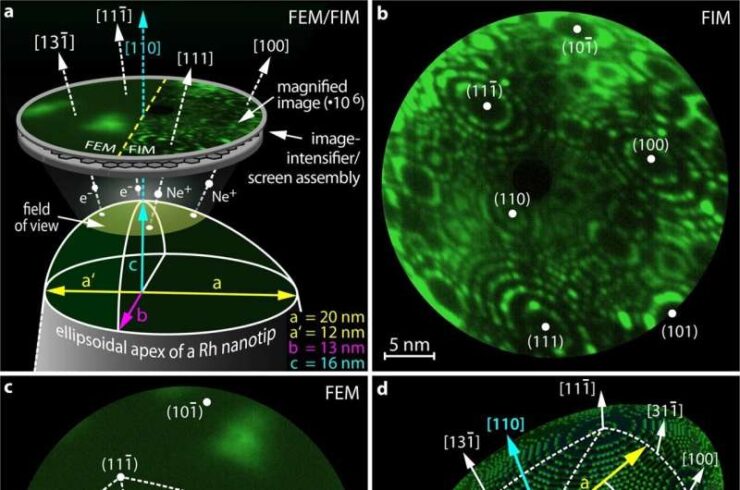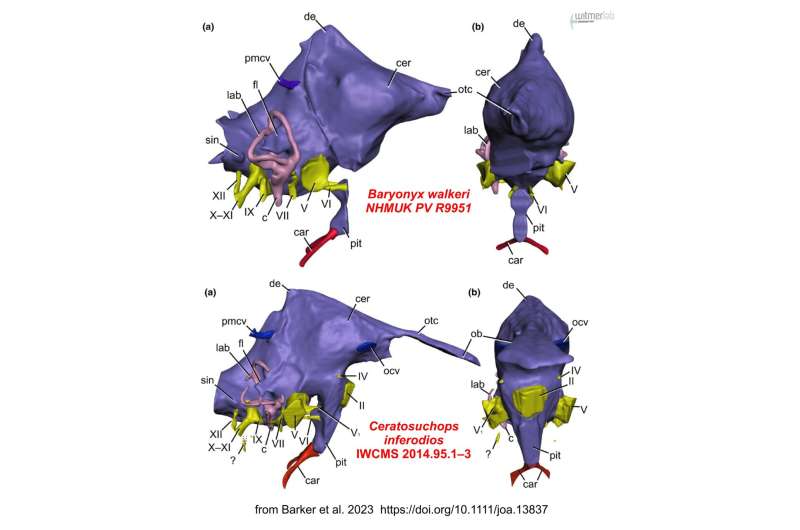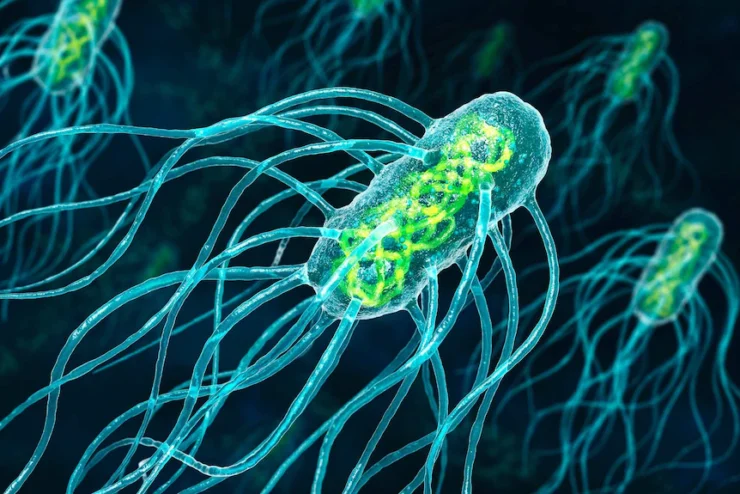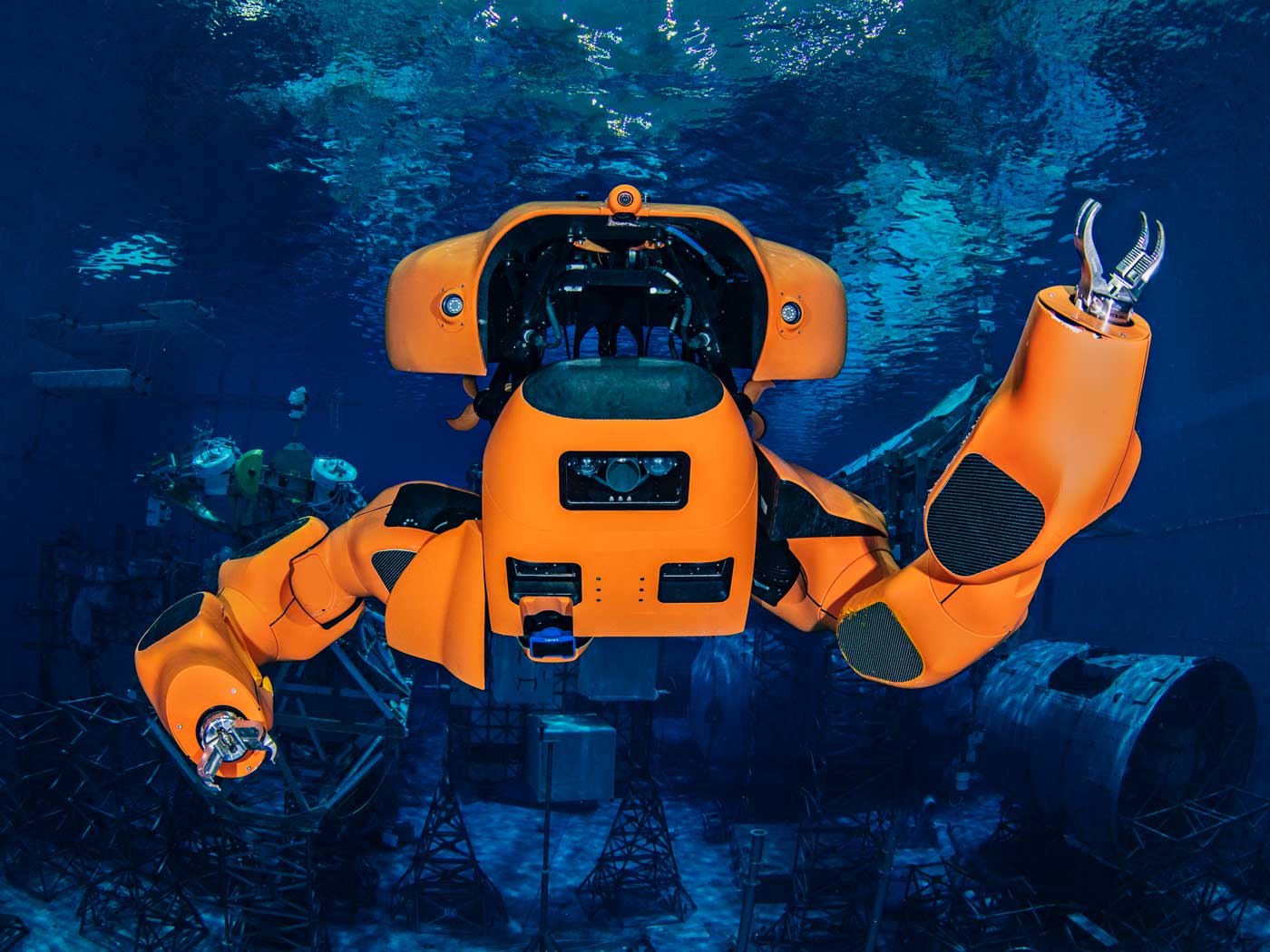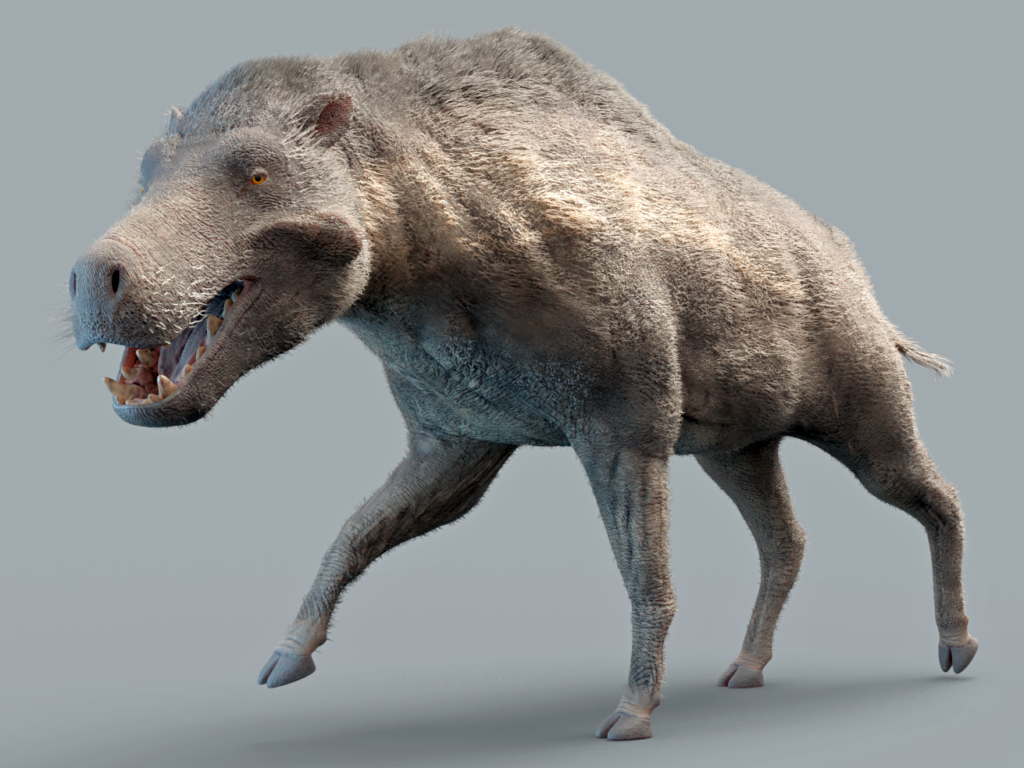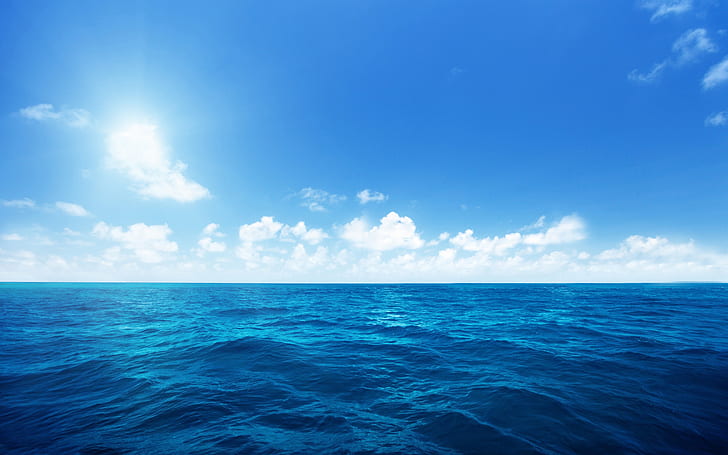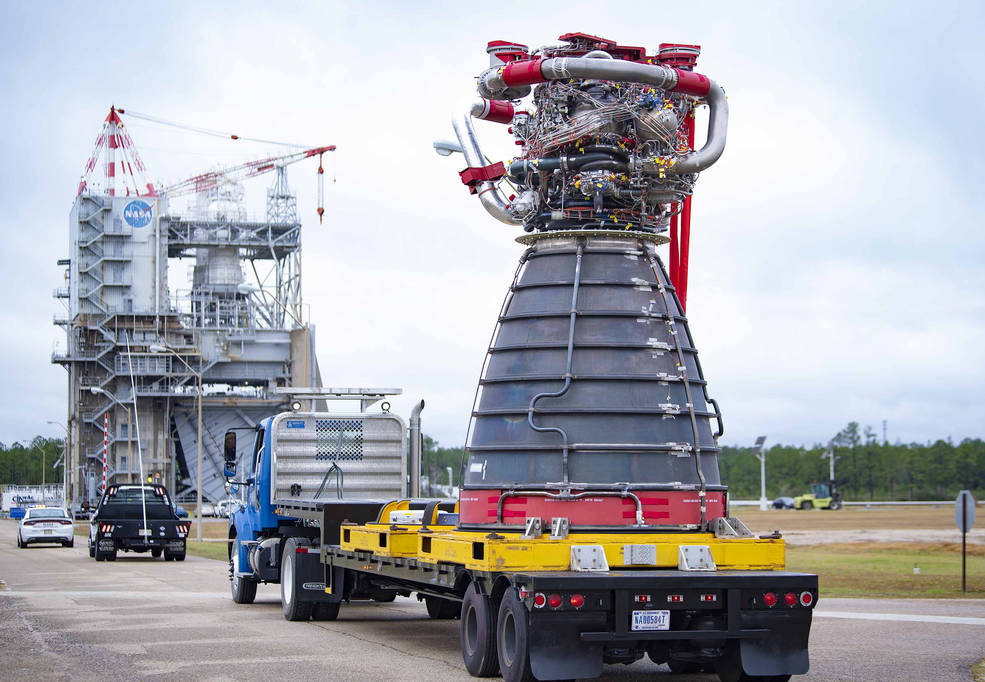FUTURES:Mission Psychology
By A’liya Spinner
Tribulations at Tranquility Base
宁静基地的苦难
For once, the lunar base at the edge of the Sea of Tranquility was quiet. Fatima sat cross-legged on her cot, a tablet in her lap. Her “room” was more of a closet, really, with nothing more than a pull-down bed and space-conscious drawers that contained all of her few personal possessions. The walls were covered in drawings and stickers, some photos of the moon’s surface and of her family back home. Every inch of the cramped space had been personalized to the best of her ability; the rest of the lunar base was sterile and pristine, cleaned and polished and inspected and scrubbed free of any trace of use. She valued the chance to express herself in her private space, at least a little.
这一次,位于“宁静之海”边上的月球基地安静了下来。法蒂玛盘腿坐在小床上,膝上放着一块写字板。她的“房间”更像是一个衣橱,真的,除了一张拉下式床和一些有空间意识的抽屉,里面装着她仅有的几件私人物品。墙上挂满了图画和贴纸,一些是月球表面的照片,还有她家人在家乡的照片。狭小的空间里,每一寸地方都是她尽其所能定制的;月球基地的其他部分都是无菌的、原始的,经过清洁、抛光、检查和擦洗,没有任何使用的痕迹。她很珍惜在自己的私人空间里表达自己的机会,至少是一点点。
“It’s your move,” Georgi— the station’s resident AI companion and occasional therapist— chimed in.
“这是你自己的事情,”空间站的人工智能同伴兼临时治疗师格奥尔基插话道。
“I know, I know,” Fatima said, waving her hand at the air before swiping at the screen of her tablet. She and Georgi were playing a game of chess as they occasionally chatted, and she, as usual, was losing. The computer responded to her hurried move almost immediately, needing no time to dither like she did.
“我知道,我知道,”法蒂玛说着,向空中挥了挥手,然后刷了一下平板电脑的屏幕。她和格奥尔基一边下棋,一边偶尔聊天,她像往常一样输了。电脑几乎立即对她匆忙的动作做出了反应,不需要像她那样犹豫。
Her contemplation was interrupted by a knock on the door. Before she was able to respond, the door slid open and her colleague strode in, dressed in his mission uniform. Fatima sighed and put the tablet down.
她的沉思被敲门声打断了。她还没来得及回答,门就开了,她的同事穿着使团制服大步走了进来。法蒂玛叹了口气,放下了写字板。
“We talked about this, Osvald,” she grumbled. “You can’t just walk in on people’s space without permission.”
“我们谈过了,奥斯瓦尔德,”她抱怨道。“你不能未经允许就闯入别人的空间。”
“I knocked,” he defended. Fatima rolled her eyes and stood, adjusting her recreation clothes. Osvald pestered everybody on the base, but it came from a place of good intentions. He was their resident nutrition expert and chef, so if he was coming to her on off-hours, he probably needed some sort of help. She decided that she could scold him later, at the communal meeting where the fifteen members of the crew gathered and discussed any interpersonal or mechanical errors they had encountered.
“我敲门了,”他辩解道。法蒂玛翻了翻白眼,站了起来,整理着她的休闲服。奥斯瓦尔德纠缠着基地里的每个人,但他的出发点是好的。他是他们的常驻营养专家和厨师,所以如果他在下班时间来找她,他可能需要某种帮助。她决定以后再骂他,在15名船员聚集在一起讨论他们遇到的任何人际关系或机械错误的公共会议上。
“What’s the matter?” Fatima asked, grabbing a toolkit from an alcove in the wall. She was the senior of the two mechanics aboard the station, a vital member of the team, even if she, herself, wasn’t responsible for conducting the advanced research that occurred here. Osvald stepped back to allow her access out into the corridor and began to talk.
“怎么了?”法蒂玛问,从壁龛里拿了一个工具箱。她是空间站上两名机械师的前辈,是团队的重要成员,尽管她本人并没有负责在这里进行的高级研究。奥斯瓦尔德向后退了一步,让她走到走廊里,开始说话。
“Well, I was cooking in the mess hall—” mess hall was a generous term for the small habitat pod containing both the kitchen and the dining tables, “—and I noticed there was an issue with some of the pipes. Usually I’d ask mission control for help, but with the time delay… and you know, it’s probably nothing serious anyways. So I was hoping you could just take a look, and—”
“嗯,我当时在食堂做饭——“食堂是对包含厨房和餐桌的小隔间的一个慷慨的称呼,”——我注意到有些管道有问题。通常我会向指挥中心寻求帮助,但由于时间延迟,你知道,可能没什么大不了的。所以我希望你能看一眼,然后——”
There was shouting up ahead, cutting Osvald off and echoing in the slender hallways of the base. Fatima immediately broke into a sprint, the chef following close behind her. A moment later, a pair of disheveled researchers rounded the corner up ahead at a jog, babbling to themselves and waving frantically at the mechanic.
前面的喊声打断了奥斯瓦尔德,在基地细长的走廊里回荡。法蒂玛立即开始冲刺,厨师紧跟在她后面。过了一会儿,两个衣冠不整齐的研究人员从前面的拐角处跑了过来,嘴里念念有词,疯狂地向修理工挥手。
“One of the oxygen lines burst!” The taller of the two— a Nigerian astrophysicist named Sani— panted, out of breath from running through the habitat’s halls.
“有一根氧气管爆裂了!”两人中个子较高的是尼日利亚天体物理学家萨尼,他跑过栖息地的大厅,上气不接下气地喘着粗气。
“In the sample processing lab,” her companion, Dr. Flandre, added. “We sealed off that pod and the ventilation systems, and no one was hurt. But I don’t know how we’re going to get in there and fix it. There’s no airlock set up over there.”
“在样品处理实验室,”她的同伴弗兰德博士补充说。“我们封闭了那个吊舱和通风系统,没有人受伤。但我不知道我们要怎么进去把它修好。那里没有设置气闸。”
The rest of the crew was beginning to appear, rushing in from wherever they’d been. Tranquility Base was small, and noise carried through the interconnected habitat pods. They looked relieved to see that Sani and Flandre seemed uninjured, but anxious murmurs soon began to pass between them.
其他船员开始出现了,从他们刚才去的地方冲了进来。宁静基地很小,噪音通过相互连接的居住舱传递。看到萨妮和弗兰德似乎没有受伤,他们似乎松了一口气,但很快他们之间就开始发出焦虑的窃窃私语。
“How are we supposed to finish our work without a sample lab?”
“没有样品实验室,我们怎么完成工作?”
“The next resupply from Earth isn’t for another seven months!”
“下一次来自地球的补给还要七个月!”
“We’ll need to check the other lines… what if another one breaks?”
“我们需要检查其他的线路……如果另一条断了怎么办?”
Fatima stepped forward, resting a hand on Sani’s shoulder as the astrophysicist trembled with residual nerves. Then, the mechanic turned back to face the small assemblage of lunar explorers. She knew them all well— it was impossible not to make friends with your neighbors when you all lived in the same house, trapped inside by the inhospitable lunar surface.
法蒂玛走上前,一只手搭在萨尼的肩膀上,这位天体物理学家因残余的神经而颤抖。然后,机械师转过身来,面对着这一小群月球探险者。她对他们都很熟悉——当你们都住在同一所房子里,被不适宜居住的月球表面所困时,不与邻居交朋友是不可能的。
“We’ll figure this out,” she consoled them. “We’ll send a message to Earth and wait for their reply. In the meantime, Georgi and I can figure out some way to make a makeshift airlock. And we’ll send teams out to check the rest of the ventilation systems. We might be on our own, but we still have each other. It’s going to be okay.”
“我们会想出办法的,”她安慰他们。“我们将向地球发送信息,等待他们的答复。与此同时,格奥尔基和我可以想办法做一个临时气闸。我们会派人去检查其余的通风系统。我们也许只能靠自己,但我们还有彼此。一切都会好的。”
This was met with nods and murmurs of agreement. They’d been lucky so far, not to face any sudden disasters. But they were also trained to handle them. Fatima lifted her toolkit.
大家纷纷点头表示同意。到目前为止,他们很幸运,没有遇到任何突如其来的灾难。但他们也接受过处理这些问题的训练。法蒂玛提起她的工具箱。
“Let’s get to work.”
“让我们开始工作吧。”
Life in Isolation
与世隔绝的生活
Today, researchers studying some of the most remote places on Earth— like the deep ocean and the Arctic— spend weeks to months in isolation from the rest of the world, often in hazardous environments and in cramped living conditions. Scientists working for the British Antarctic Survey, along with supportive colleagues including chefs, doctors, carpenters, and boaters, often spend six-month winters at small BAS research stations in groups that rarely get larger than thirty. Though well-supplied with food, film and book libraries, and satellite access that allows social media and email use, many of these intrepid explorers say that the unending darkness and cold of the multi-month Antarctic night quickly becomes an irritant. They reported becoming easily annoyed with the most minute housekeeping duties, and growing restless in the connected pods of the research station, often unable to leave for days or weeks on end due to raging storms. The close quarters with their coworkers also led to “love triangles” and failed relationships, interpersonal conflict, and intergroup tension that was only inevitable in a place with so little room for personal space or secrets. Still, the BAS researchers often return the next winter, and say they find joy and fulfillment in their work.
今天,研究地球上一些最偏远地区的研究人员——比如深海和北极——要花几周到几个月的时间与世界其他地方隔离,通常是在危险的环境和拥挤的生活条件下。为英国南极调查局工作的科学家,以及支持他们的同事,包括厨师、医生、木匠和划船者,经常在BAS的小型研究站里度过六个月的冬天,小组成员很少超过30人。尽管有充足的食物、电影和图书库,以及允许使用社交媒体和电子邮件的卫星接入,这些勇敢的探险家中的许多人说,南极长达数月的夜晚无休止的黑暗和寒冷很快就成为了一种刺激。据报告,他们很容易被最琐碎的家务工作惹恼,在科考站的连接舱里变得焦躁不安,经常因为猛烈的风暴而连续几天或几周无法离开。与同事的近距离接触也导致了“三角恋”、失败的关系、人际冲突和团队间的紧张关系,这在一个没有多少私人空间或秘密的地方是不可避免的。尽管如此,BAS的研究人员经常在第二年冬天回来,他们说他们在工作中找到了快乐和成就感。
But not all people handle isolation so well. In 2020, 21-year-old Albert had to be medically evacuated from the Polish Polar Station after experiencing extreme psychotic distress. In the days leading up to his evacuation, he described extreme homesickness, unsatisfaction in his research, and a sense of intellectual decline from lack of stimulation. His personal logs also detailed his mounting frustration with his colleagues and anger at perceived mistreatment with no one to turn to for help. And Albert, while an extreme case worthy of being removed on grounds of medical emergency, is not alone in these feelings. One study on British Antarctic Survey teams found that group isolation had an overall negative mental and emotional effect on those involved, and could even drive formerly healthy individuals to destructive or violent outbursts. Another study found that there was no easy way to determine who would not adapt well to Arctic isolation— while most researchers were reasonably well-adjusted prior to and throughout the mission, all suffered some form of isolation-induced stress, and those that faced larger mental health crises were not united by any sort of background, preexisting conditions, or personality traits. Reacting poorly to isolation seems to be an innately human response, no matter how self-reliant or introverted some individuals claim to be.
但并不是所有人都能很好地应对孤独。2020年,21岁的阿尔伯特在经历了极度的精神痛苦后,不得不从波兰极地站接受医疗后送。在他被疏散之前的日子里,他描述了极度的思乡之情,对他的研究不满意,以及由于缺乏刺激而产生的智力衰退感。他的个人日志还详细描述了他对同事日益增长的失望,以及对无人求助的虐待感到愤怒。而阿尔伯特,虽然是一个极端的病例,值得以医疗紧急为由被移走,但有这种感觉的并不只有他一个。英国南极考察队的一项研究发现,群体隔离对参与者的精神和情感产生了总体负面影响,甚至可能导致原本健康的人产生破坏性或暴力的爆发。另一项研究发现,没有一种简单的方法来确定谁不会很好地适应北极的隔离——虽然大多数研究人员在任务之前和整个过程中都相当好地适应了,但所有人都遭受了某种形式的隔离导致的压力,而那些面临更大的心理健康危机的人并不是由于任何类型的背景、先决条件或个性特征而团结起来的。对孤立的不良反应似乎是人类的一种天生反应,不管一些人自称多么自立或内向。
Ongoing Research
正在进行的研究
The study of group and individual psychology during long, isolated missions is nothing new. But with an increased push for longer and human-crewed exploration into space (and possibly even human settlement on Mars), it has become even more important to understand the effects that these missions might have on the people who undertake them.
在长期、孤立的任务中研究群体和个体心理并不是什么新鲜事。但是,随着对更长时间的载人太空探索(甚至可能是人类在火星上定居)的不断推进,了解这些任务可能对执行任务的人产生的影响就变得更加重要了。
Given the scope of human psychology and group dynamics, forms of research on this subject vary considerably. As well as studying real, working people in isolation— such as the British Antarctic Survey teams— controlled environments are also being used to study specific scenarios. For example, a group of fifteen volunteers in France recently entered a cave for forty days with no sunlight, no contact with the outside world, and only basic amenities. Brain activity and cognitive function of the volunteers was measured prior to their isolation, to be compared after the course of the experiment. The goal is to study the effects that “losing a sense of time and space” has on a human mind, something space travelers will no doubt experience after spending months in a weightless environment without the traditional day and night cycles of a spinning planet. Of course, astronauts will maintain contact with their families and mission experts back on Earth, unlike the completely isolated volunteers in the cave, which will help to prevent extreme loneliness and emotional distress. But the French study will still provide valuable information on the effects of losing time and space, and possibly what routines and strategies the volunteers discovered during their forty day exile that helped combat feelings of claustrophobia and listlessness.
鉴于人类心理学和群体动力学的范围,这一主题的研究形式有很大的不同。除了研究与世隔绝的真实工作人员——如英国南极考察队——之外,受控环境也被用于研究具体的情景。例如,最近在法国,一个由15名志愿者组成的小组进入一个洞穴,在没有阳光、没有与外界接触、只有基本设施的情况下呆了40天。志愿者的大脑活动和认知功能在他们被隔离之前被测量,并在实验结束后进行比较。这项研究的目的是研究“失去时间和空间感”对人类思维的影响。在失重的环境中生活了几个月之后,没有了传统的行星昼夜循环,太空旅行者无疑会体验到这种感觉。当然,宇航员将与地球上的家人和任务专家保持联系,不像洞穴里完全孤立的志愿者,这将有助于防止极度孤独和情绪困扰。但法国的这项研究仍将提供宝贵的信息,包括失去时间和空间的影响,以及志愿者在四十天的流亡中发现的有助于对抗幽闭恐惧症和无精打采的日常活动和策略。
NASA also conducts experiments aimed specifically at studying the dynamics of potential Martian or Lunar habitats, cut off from the easily-accessed resources of Earth. The largest of which was the first HI-SEAS mission, in which six volunteer researchers lived in an isolated, cramped habitat atop a desolate Hawaiian volcano for eight months. Once a week, the researchers would venture out in bulky suits similar to the sort that might be worn on another planet, and they had limited access to water, electricity, and food, simulating the freeze-dried meals and recycled bathwater that astronauts contend with every day. Since its initial success, HI-SEAS has conducted several follow-up missions— not all of which have gone so smoothly. In one experiment, a crew member had to withdraw due to a chronic medical condition; in order not to compromise the integrity of the isolation, the remaining researchers agreed to act as if their colleague had died and been left on the barren Martian surface to delay decomposition until an Earth burial became possible. The withdrawing (“dead”) individual was able to leave the facility on their own, and was picked up by an evacuation team, preserving the illusion of no-contact. But in mission six, the need for evacuation was much more urgent; a team member was electrocuted during a maintenance excursion and started developing symptoms that her teammates worried might’ve been a heart attack. She was not able to calmly “die” and remove herself from the simulation; emergency services came, and took her away for emergency treatment, compromising the integrity of the mission.
NASA还进行了一些实验,专门研究潜在的火星或月球栖息地的动态,这些栖息地与地球上容易获取的资源隔绝了。其中规模最大的是第一次HI-SEAS任务,在这个任务中,六名志愿研究人员在夏威夷一座荒凉的火山顶上一个孤立而狭窄的栖息地生活了8个月。研究人员每周都会穿着类似于在另一个星球上可能会穿的那种笨重的衣服外出,他们获得的水、电和食物有限,模拟宇航员每天都要面对的冻干食物和回收洗澡水。自最初的成功以来,HI-SEAS已经执行了几次后续任务,但并不是所有的任务都进行得如此顺利。在一次实验中,一名宇航员因为慢性疾病不得不退出;为了不破坏隔离的完整性,其余的研究人员同意,就像他们的同事已经死亡,被留在贫瘠的火星表面一样,以推迟腐烂,直到有可能将其埋葬在地球上。撤离(“死亡”)的人能够自己离开设施,并被一个疏散小组接走,保持了没有接触的假象。但在第六次任务中,疏散的需要要紧迫得多;一名队员在一次维修旅行中触电,并开始出现她的队友担心可能是心脏病发作的症状。她无法平静地“死去”,从模拟中解脱出来;急救人员来了,把她带走接受紧急治疗,破坏了特派团的完整性。
The crew member’s removal from mission six was controversial among her colleagues while they argued about whether or not to end the experiment. Some of them had given up their jobs and flown from around the world to partake in the research, and would be left in an awkward position if forced to end before the projected eight month finish line. But others prioritized the safety of their friend above everything else, leading to arguments and social splintering; eventually the call was made, and the mission was finished. It led to questions of true isolation— what would happen to an injured person on Mars? The crew had basic first aid training, but what they needed was a doctor— which means a highly-trained physician, and their equipment, will have to be included on manned missions to other worlds. That means trade-offs, more planning, and healthcare providers willing to make the 160 million mile mission.
这名机组人员被从六号任务中移除,在她的同事中引起了争议,他们争论是否要结束实验。他们中的一些人放弃了工作,从世界各地飞到这里参与研究,如果被迫在预计的8个月终点线之前结束,他们将陷入尴尬的境地。但另一些人则把朋友的安全看得比其他一切都重要,这导致了争吵和社会分裂;最终电话打了,任务完成了。这引发了关于真正隔离的问题——一个受伤的人在火星上会发生什么?机组人员接受了基本的急救训练,但他们需要的是一名医生——这意味着一名受过高度训练的医生,他们的设备将必须包括在前往其他星球的载人任务中。这意味着要做出取舍,更多的计划,以及医疗保健提供者愿意完成1.6亿英里的任务。
HI-SEAS is temporarily pausing experiments as they grapple with the questions raised by mission six. As calls for Martian colonization increase in popularity, their work and research will become all the more vital, hopefully solving these crises on Earth before we encounter them on Mars.
HI-SEAS暂时暂停了实验,因为他们正在努力解决六号任务提出的问题。随着在火星殖民的呼声越来越高,他们的工作和研究将变得更加重要,希望在我们在火星上遇到这些危机之前解决地球上的这些危机。
What We’ve Learned
我们学到了什么
Despite all the obstacles we’ve encountered, through experimentation and research, we’ve learned a lot about group psychology in isolation, and how to design a habitat, team, and procedure that helps prevent some of these conflicts. For example, researchers at the BAS stations stressed the importance of having private space to escape to after long days in cramped conditions with their colleagues. Physical, private space as being vital to mental health is something we’ve only recently started to appreciate, especially in an era of urban super-centers, roommates, and sociality. Space reserved only for one individual allows us to process strong emotions, express ourselves in decoration and personal hobbies, and mentally recharge. Without it, even the most extroverted person can become overwhelmed, and interpersonal tensions fray. So while interior space may be limited in small space-faring ships or Martian colonies, reserving areas for crew members to call their own might be crucial for maintaining their sense of individuality, and therefore the ability of the group to function effectively together.
尽管我们遇到了所有的障碍,通过实验和研究,我们学到了很多关于群体心理学的独立知识,以及如何设计一个栖息地、团队和程序来帮助防止这些冲突的发生。例如,BAS工作站的研究人员强调,在与同事们在拥挤的环境中度过漫长的一天后,有一个可以逃避的私人空间的重要性。物理意义上的私人空间对心理健康至关重要,这一点我们直到最近才开始认识到,尤其是在城市超级中心、室友和社交的时代。只有一个人的空间可以让我们处理强烈的情感,在装饰和个人爱好上表达自己,并在精神上充电。没有它,即使是最外向的人也会不知所措,人际关系会变得紧张。因此,尽管小型太空飞船或火星殖民地的内部空间可能是有限的,但为船员保留自己的空间可能对保持他们的个性感至关重要,因此也有助于团队有效地协同工作。
Most importantly, though, is fostering a healthy group dynamic before ever entering isolation. Albert, for example, was unfamiliar with the janitorial staff at his research station, and grew to resent them for a perceived laziness, while simultaneously feeling pushed around and infantilized by the team leaders. Much of the conflict in HI-SEAS mission six over whether to end the mission and call for emergency medical support was caused by unfamiliarity and differing priorities among crew members. Both of these situations likely could’ve been avoided— or at least significantly lessened in severity— if team members had spent time together reviewing the mission, talking, and engaging in the real world, prior to entering isolation. The Tuckman’s Stages of Group Development model— a popular baseline for developing and measuring healthy group dynamics— outlines the phases that groups undergo as they engage with tasks and spend time together. The second stage, “Storming”, predicts that any group will encounter some period of argumentation, conflict, and power clashes before they’re able to advance to the productive “Norming” stage, and then eventually to the highly flexible, personally and professionally successful “Performing”. Ideally, groups will have entered a familiar performing stage before isolation ever begins, rather than meeting each other only days before an eight month mission in a high-stress Mars simulation. And they’ll have plenty of time to get to know each other, problem solve, and learn group dynamics; astronaut training at NASA currently takes upward to two years, and Martian missions will probably last longer. If future settlers are trained together— rather than as individuals— it may better foster these strong, lasting relationships necessary to maintaining harmonious groups in isolation.
然而,最重要的是在进入隔离状态之前培养一种健康的群体活力。例如,阿尔伯特对他的研究站的看门人并不熟悉,他对他们的懒惰感到厌恶,同时又觉得自己被团队领导摆布,被他们当小孩看待。在HI-SEAS任务6中,关于是否结束任务并呼吁紧急医疗支助的许多冲突都是由于船员之间的不熟悉和不同的优先事项引起的。如果团队成员在进入隔离状态之前花时间在一起回顾任务、交谈并参与到现实世界中,这两种情况很可能是可以避免的,或者至少严重程度可以显著降低。塔克曼群体发展阶段模型——一个发展和衡量健康群体动态的流行基准——概述了群体在参与任务和在一起度过时间时所经历的阶段。第二个阶段,“风暴”,预测任何一个群体都会遇到一段时间的争论、冲突和权力冲突,然后他们才能进入富有成效的“规范”阶段,然后最终进入高度灵活、个人和职业成功的“执行”阶段。理想情况下,团队在隔离开始之前就已经进入了熟悉的表演阶段,而不是在8个月的高压力火星模拟任务前几天才见面。他们将有充足的时间互相了解,解决问题,学习群体动力学;美国国家航空航天局的宇航员培训目前需要长达两年的时间,而火星任务可能会持续更长时间。如果未来的定居者是一起接受训练,而不是单独训练,就可能更好地培养维持和谐的孤立群体所必需的牢固持久的关系。
Technological Aid
技术援助
Not only has research into group psychology advanced, but the technologies that astronauts will have access to have also developed considerably. Just like 3D printing will enable crews to create tools, medical instruments, and habitat pieces without taking up valuable inventory space until needed, new innovations in entertainment and stimulation will help keep the mental health of researchers in peak condition. Especially, advancements in AI will help mitigate the time delay between messages to Earth, giving real time aid to astronauts as problems arise— one new AI is even being trained in the role of a therapist, able to interpret facial expressions and offer constructive advice to people in need. Though no replacement for regular wellness check-ups with experts back home, artificial intelligence programmed as mental and physical health aids may help catch minor issues before they spiral out of control. Adding friendly or playful personalities to AI companions could also add a level of comfort and expand the social connections of an isolated habitat while saving space, since studies have shown that people tend to enjoy the company of voice-based AI over uncanny robotics, and may turn to them for casual, mindless conversation.
不仅对群体心理学的研究进步了,宇航员将接触到的技术也有了长足的发展。就像3D打印将使工作人员能够创造工具、医疗器械和栖息地部件,直到需要时才占用宝贵的库存空间一样,娱乐和刺激方面的新创新将有助于使研究人员的精神健康处于最佳状态。特别是,人工智能的进步将有助于减少信息与地球之间的时间延迟,在出现问题时为宇航员提供实时帮助——一种新的人工智能甚至被训练成治疗师,能够解释面部表情,并为有需要的人提供建设性的建议。尽管人工智能无法取代回国后由专家进行的定期健康检查,但作为精神和身体健康辅助工具的人工智能,可能有助于在小问题失控之前发现它们。给人工智能伙伴添加友好或好玩的个性也可以增加舒适度,扩大孤立栖息地的社会联系,同时节省空间,因为研究表明,人们倾向于享受基于语音的人工智能的陪伴,而不是神秘的机器人,可能会转向他们进行随意的、无需思考的对话。
Innovations in entertainment may also alleviate sources of stress. Virtual reality headsets, for example, are being used in senior centers where residents suffer from feelings of isolation and depression, and psychologists are seeing considerable improvements to mental health. VR allows an escape to new environments, games, and scenarios that can provide relief from the monotony of an enclosed habitat or ship. Preventing boredom can be an unexpectedly powerful tool in reducing interpersonal conflict, and the importance of downtime and leisure cannot be overstated. Even astronauts aboard the ISS have plenty of free time to play games, exercise, and relax, to keep the stress of work from taking over every aspect of their lives.
娱乐方面的创新也可以缓解压力的来源。例如,虚拟现实头盔被用于老年人中心,那里的居民有孤独感和抑郁感,心理学家看到心理健康有了显著改善。虚拟现实可以让人们逃离到新的环境、游戏和场景中,从封闭的栖息地或船只的单调中解脱出来。防止无聊是减少人际冲突的一个意想不到的强大工具,停机和休闲的重要性不能被夸大。即使是国际空间站上的宇航员也有大量的自由时间来玩游戏、锻炼和放松,以避免工作压力占据他们生活的方方面面。
No technology can replace human relationships, but they can augment our social lives, and alleviate homesickness. Artificial intelligence can help problem-solve when Earth is too far away to reply in real time, and virtual reality will supplement the barren expanse of the Moon and Mars. Isolation on this scale has never been attempted before, and it will come with unforeseen challenges, and interpersonal conflict that can never be fully avoided. But thanks to selfless volunteers and experiments here on Earth, we know how to take precautions against common pitfalls, to familiarize astronauts with each other and with their own mental health, and to engineer our habitats in such a way that crew members are able to have both communal and personal space. Humans are a social species, designed by evolution to thrive in groups that share labor and stories, and— perhaps even more importantly than fast engines, innovative waste recycling, and life support systems— we will have to nurture that sociality to survive anywhere we travel to.
任何技术都不能取代人际关系,但它们可以增加我们的社交生活,减轻乡愁。人工智能可以在地球太远无法实时回复的情况下帮助解决问题,虚拟现实将补充月球和火星贫瘠的土地。如此大规模的隔离从未被尝试过,它将带来不可预见的挑战,以及永远无法完全避免的人际冲突。但多亏了无私的志愿者和地球上的实验,我们知道如何预防常见的陷阱,让宇航员熟悉彼此和他们自己的心理健康,并设计我们的栖息地,使宇航员能够同时拥有公共和个人空间。人类是一种社会性的物种,在进化过程中被设计成在群体中繁衍生息,分享劳动和故事,而且——也许比快速引擎、创新废物回收和生命支持系统更重要的是——我们将不得不培养这种社会性,以便在我们旅行到的任何地方生存下来。



